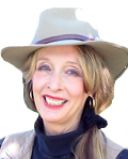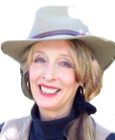Creativity
How to Live More Creatively
Three powerful strategies from New York Artist Loren Ellis.
Posted March 12, 2023 Reviewed by Lybi Ma
Key points
- Human beings are naturally creative.
- Research connects creativity with greater health and well-being.
- We can live more creatively by connecting with our source of inspiration, finding flow, and reaching out to others.
If you’ve been wondering whether you’re creative, you are. All of us are creative. Creativity is not limited to artists, writers, scientists, and musicians. It’s intrinsic to our human nature (Amabile, 1983; Richards, 2007; Runco, 2007). Our creative capacity enables us to not only survive but thrive, discover new solutions, and shape our individual and collective futures. Humanistic psychologist Abraham Maslow (1971) saw creativity as an expression of our highest human potential, and positive psychologist Mihaly Csikszentmihalyi (1996) found that when we live creatively, we experience greater joy and meaning in life.
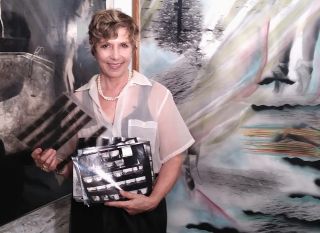
As children, we were all creative, reaching out to learn, grow, and explore our world (Simonton, 2009). Creative adults retain the openness, curiosity, and mindful awareness of childhood. They follow their curiosity, try different options, and discover new possibilities. Research has connected this creative approach to life with greater health, happiness, success, and well-being (Connor, DeYoung, & Silvia, 2016).
We can renew our creative capacity by learning from creative role models like New York artist Loren Ellis, who believes that as human beings, we have a primal desire “to imagine and create,” and that “the healthy growth of a civilization depends on a society that supports unlimited free expression to explore all avenues of invention” (Ellis, 2023).
Born in New York, she moved to Florida as a child, then moved back to New York to follow her dream. She developed her distinctive mixed media style, blending photography and painting into what she calls “a visual symphony.”
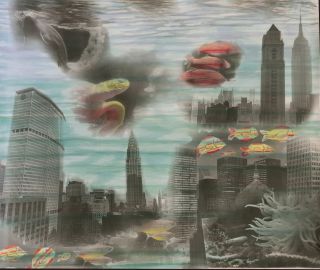
Loren follows three powerful practices to support her creativity, covered in her new book and documentary:
- Connecting with a Source of Inspiration
- Finding Flow
- Reaching Out to Others
1 Connecting with Your Source of Inspiration. Loren Ellis finds inspiration in Eastern philosophy and the natural world. She meditates by the ocean, enjoys gardening, observing the cycle of the seasons, and she studies and applies the wisdom of the Tao Te Ching. She believes that “human beings must connect with the energy of the earth for mental and physical growth, that our “technical machines” have gotten us too far from nature.”
Where do you find your source of inspiration—in nature, meditation, spiritual reading, or something else? To renew your creative spirit, make it a point to connect with your source of inspiration regularly.
2 Finding Flow. Loren views creating art and poetry as “a sacred practice” when we “get into the zone, connected to some kind of spiritual flow” (see Czikszentmihalyi, 1996).
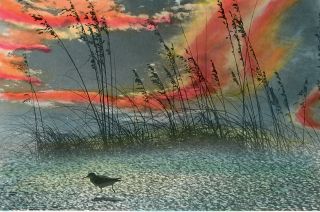
You can follow her example by recognizing what brings you into a flow state in your own life when you’re so engaged in a process, that all ego separation disappears. Is it making art? Engaging in a creative hobby? Cooking? Gardening? Dancing, singing, playing a musical instrument, or something else? Whatever it is, make time in your life for more of this flow activity. As Loren says in her documentary, “Keep the childlike way as if you’re seeing something for the first time” (Ellis, 2023b)
3 Reaching Out to Others. Another part of living creatively is sharing our gifts with others. When she moved from Florida to New York City Loren Ellis began teaching her unique style at Parson’s School of Design and the Fashion Institute while creating art in her Tribeca studio and producing many exhibitions of her art in New York City. In 1999, as her art was flourishing, she moved into a midtown Manhattan studio, and her first thought was, “How can I share this wonderful space?” In 2000, she founded Art for Healing NYC, a nonprofit to support visual and performing artists. In her studio gallery, Loren curated exhibitions by local and international artists, interactive arts programs, healing meditation gatherings, receiving numerous grants and awards, and encouraging people to follow their dreams. Art for Healing retired in 2022. Now, through her new book and film, Loren continues to do her part to help heal humanity.
Loren’s book Essence of an Artist: Follow Your Dream is presently a finalist for the Eric Hoffer book award and the da Vinci Eye book cover award and will be featured at The London Book Fair in April 2023. Her recent documentary film mirrors the book with the same title.
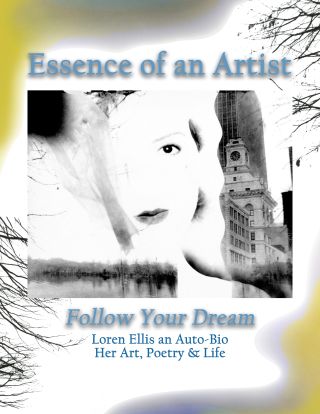
Loren writes in her inspirational book that involvement in any creative interest is a healing force, that by living more creatively and expanding our awareness beyond ego, we build self-confidence, relieve stress and fear, flourish as individuals, and bring greater harmony to the world. Research has revealed the healing power of the arts and shown that living more creatively can improve our health (Diessner, et al, 2008; McKeown, et al, 2016; Richards, 2007).
How do you motivate yourself to share your creative gifts? Loren Ellis’s daily mantra inspired by the Tao is: “I live with purpose and detachment, love, discipline and adventure, laughter and play” (Ellis, 2023a). And in her affirmative creative vision, Loren Ellis helps us realize that we are constantly evolving and even mistakes can be miracles and avenues to discovery.
According to psychologist Mihaly Csikszentmihalyi, “Our future is now closely tied to human creativity,” (1996, p. 6). Loren Ellis agrees. She views cooperation as yet another form of “creativity, which is the opposite of greed and destruction,” encouraging us all to embrace our creativity for “this is the time for all creative souls to come forward, to come together. Do not stifle the pioneering attitude.“ In "Angel Finds Her Wings," a poem she wrote in her book, Loren inspires us to live more creatively.
.jpg?itok=0SgfbvUB)
References
Amabile, T. M. (1983). The Social Psychology of Creativity: A Componential Conceptualization. Journal of Personality and Social Psychology, 45 (2), 357-376.
Connor, T. S., DeYoung, C. G., & Silvia, P. G. (2016). Everyday Creative Activity as a Path to Flourishing. The Journal of Positive Psychology, 13, 181-189.
Csikszentmihaly, M. (1996). Creativity: Flow and the Psychology of Discovery and Invention. New York, NY: Harper & Row.
Ellis, L. (2023a). Essence of an Artist: Follow your Dream. New York, NY: Pen Culture. Loren’s book is presently is in revision because she was approached by an investor in her book. Updates to purchase her book will be on www.LorenEllisArt.com. You can read her flipping book, view art portfolios and watch the film.
Ellis, L. (2023b). Essence of an Artist. Documentary. https://lorenellisart.com/documentary-1,
Ellis, L. (2020, March 2). Personal communication. Unless otherwise noted, all information froom Loren Ellis is from this interview.
Kudesia, R. S. (2015). Mindfulness and Creativity in the Workplace. In J. Reb & P.W.B. Atkins (Eds.). Mindfulness in Organizations, (pp. 190-212). Cambridge, UK: Cambridge University Press.
Maslow, A. H. (1971). The Farther Reaches of Human Nature. New York, NY: Viking Books.
McKeown, E., Weir, H., Berridge, E.-J., Ellis, L. (2016). Art engagement and mental health: Experiences of service users of a community-based arts programme at Tate Modern, London. Public Health, 130, 29-35.
Richards, R. (2007). Everyday creativity: Our hidden potential. In Richards, R. (Ed.). Everyday Creativity and New Views of Human Nature: Psychological, Social, and Spiritual Perspectives (pp. 25-53), Washington, D. C.: American Psychological Association.
Runco, M. A. (2007). To understand is to create: An epistemological perspective on human nature and personal creativity. In Richards, R. (Ed.). Everyday Creativity and New Views of Human Nature: Psychological, Social, and Spiritual Perspectives (pp. 91-107), Washington, D. C.: American Psychological Association.
Simonton, D. K. (2009). Creativity. In C.R. Snyder & S. J. Lopez (Eds.). Oxford Handbook of Positive Psychology. 2nd ed., (pp. 261-269). New York, NY: Oxford University Press.
